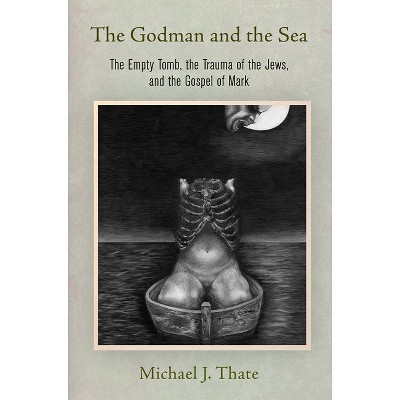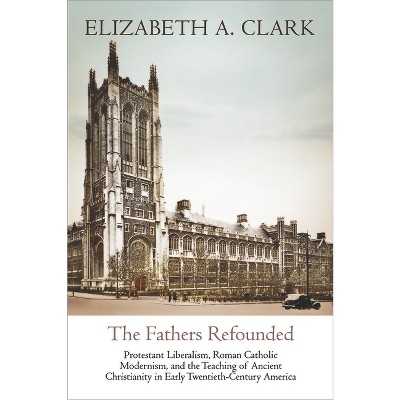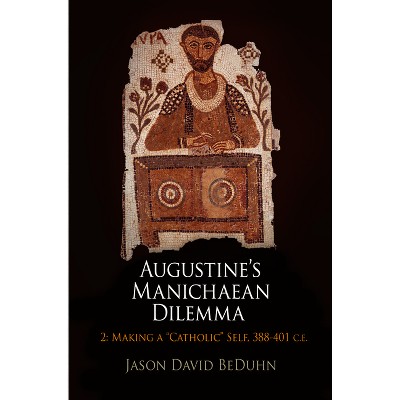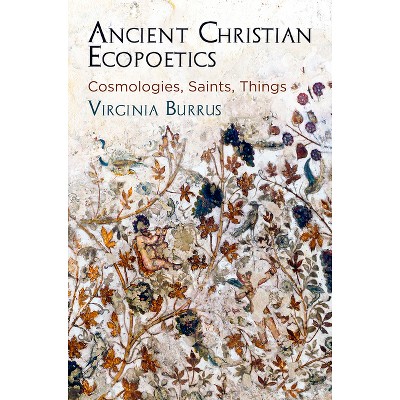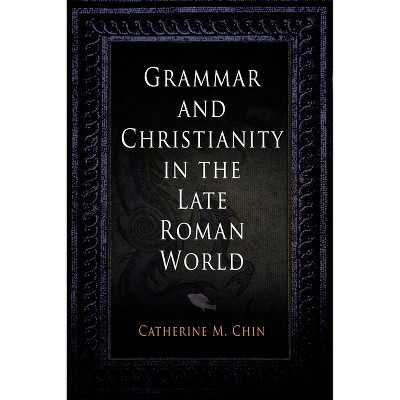Thorns in the Flesh - (Divinations: Rereading Late Ancient Religion) by Andrew Crislip (Hardcover)

About this item
Highlights
- The literature of late ancient Christianity is rich both in saints who lead lives of almost Edenic health and in saints who court and endure horrifying diseases.
- About the Author: Andrew Crislip is Associate Professor and William E. and Miriam S. Blake Chair in the History of Christianity at Virginia Commonwealth University.
- 248 Pages
- Religion + Beliefs, Christianity
- Series Name: Divinations: Rereading Late Ancient Religion
Description
About the Book
In Thorns in the Flesh, Andrew Crislip explores late ancient Christian reflections on the meaning and value of illness in ascetic practice. Overturning earlier assumptions about early Christian theology of illness, he reveals illness to be a persistent and controversial concern in early Christian debates about sanctity and asceticism.Book Synopsis
The literature of late ancient Christianity is rich both in saints who lead lives of almost Edenic health and in saints who court and endure horrifying diseases. In such narratives, health and illness might signify the sanctity of the ascetic, or invite consideration of a broader theology of illness. In Thorns in the Flesh, Andrew Crislip draws on a wide range of texts from the fourth through sixth centuries that reflect persistent and contentious attempts to make sense of the illness of the ostensibly holy. These sources include Lives of Antony, Paul, Pachomius, and others; theological treatises by Basil of Caesarea and Evagrius of Pontus; and collections of correspondence from the period such as the Letters of Barsanuphius and John.
Through close readings of these texts, Crislip shows how late ancient Christians complicated and critiqued hagiographical commonplaces and radically reinterpreted illness as a valuable mode for spiritual and ascetic practice. Illness need not point to sin or failure, he demonstrates, but might serve in itself as a potent form of spiritual practice that surpasses even the most strenuous of ascetic labors and opens up the sufferer to a more direct knowledge of the self and the divine. Crislip provides a fresh and nuanced look at the contentious and dynamic theology of illness that emerged in and around the ascetic and monastic cultures of the later Roman world.
Review Quotes
"Thorns in the Flesh moves well beyond the generalizations of a long tradition of scholarship on early Christian attitudes to disease and medicine-disease as test, judgment, or sign to others; medicine as divinely provided remedy or diabolical temptation-to a specific and highly productive study of the ambiguous position of the sick monk. The book rests on close and extensive knowledge of the primary sources for early monasticism in Greek and Coptic and thorough, justifiably critical deployment of the secondary literature."-- "Peregrine Horden, Royal Holloway University of London"
About the Author
Andrew Crislip is Associate Professor and William E. and Miriam S. Blake Chair in the History of Christianity at Virginia Commonwealth University.Shipping details
Return details
Trending Poetry






